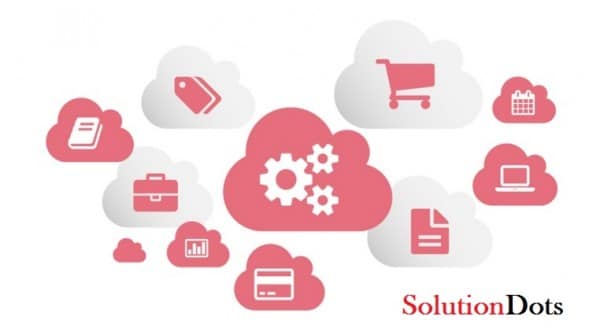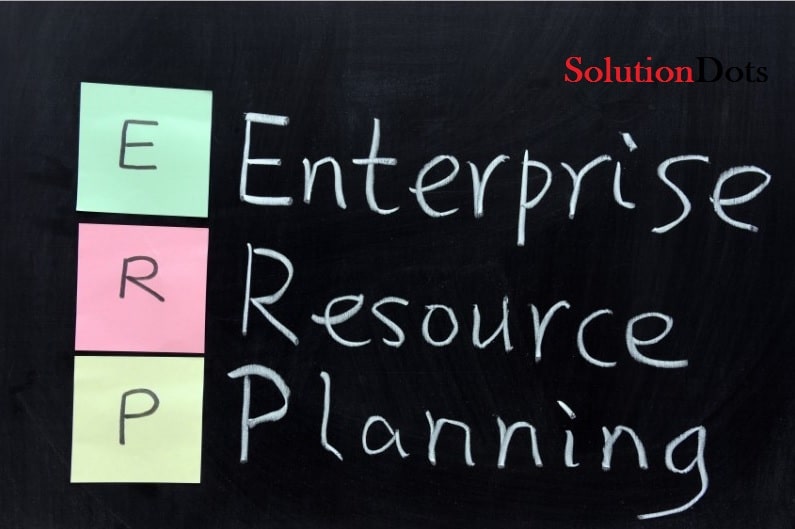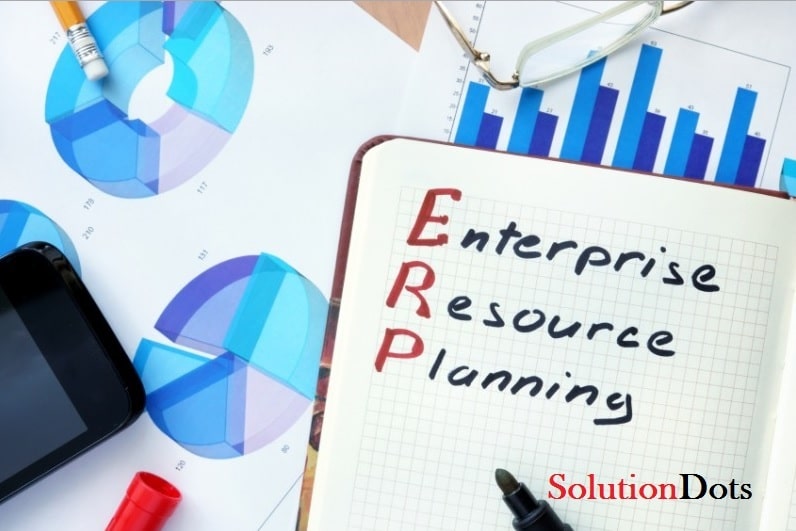The ERP Software: Examples, Types & Usage Within the Company
- ERP (Cloud) September 24,2023

Among the most common solutions for businesses, we can find many examples of ERP. Enterprise Resource Planning (ERP) is a business management software that allows planning and control processes of an enterprise.
An ERP ensures all company data is integrated and connected, allowing operations in one location to automatically reflect across departments and locations. This facilitates traceability, quick troubleshooting, and optimized business processes, providing fast and easy access to information for all relevant stakeholders.

What is ERP Full Form & What Does ERP Stand for Business?
It is important to note that the concept of ERP software goes beyond, and it should reflect a business processes and adapt them as a suit in order to function optimally.
Curiously, it is noteworthy that the history of these programs are in the process automation of war during World War II, which led to the first computers.
How to know if Your Company Needs ERP System?
Download this free PDF guide to learn the pros and cons of different ERP types and get tips for selecting the best one for your company:
What Are The Features of ERP Software?
The two main features that differentiate from other ERP business management programs is that they are modular and configurable:
- Modular: ERP systems consist of various modules that manage different departments, such as sales, marketing, human resources, and warehouses, all sharing information through a common database.
- Configurable: An ERP should be adaptable to meet each company’s specific needs, such as inventory management or retail operations. It must be configurable to suit various processes and accommodate changing organizational requirements over time.
How To Deliver a More User Centric ERP Solution?
Advantages of Installing an ERP Software System
Before considering hiring this kind of service for your business you should know the benefits of its usage:
- It allows profitable processes because planning time and tasks to your employees are as productive as possible.
- They are fully customizable, taking into account the characteristics of each company.
- There are very low cost solutions based on the total budget of a business.
- Improved internal communication, creating support among different departments.
- It allows control operations easier.
- It reduces the costs of different activities.
- Improves the overall efficiency of the company.
Aspects To Be Consider Before Installing an ERP Software System
Besides the advantages, study the potential drawbacks or problems that may occur during use:
- Custom software requires design and installation time, including a creation phase before use.
- It has a fixed cost or newspapers to behold.
- You need to be updated.
- Some need Internet connection.
- A physical equipment required for its operation.
- You can generate privacy issues.
What are the Advantages and Disadvantages of ERP System?
To avoid disadvantages, choose the right ERP service based on company needs and market options.
So you can use this information in making decisions, we tell you what are the most widely used types of ERP.
1. Main Types and examples of ERP Software
There are two major classifications when talking about ERP software types: according to your design and installation.
The custom software involves creating an ERP system from 0 to a particular company. It’s a costlier solution requiring the right provider but offers maximum adaptability. Alternatively, standard modular solutions are more affordable, faster to implement, and can be tailored to company needs.
There are even art solutions for a very specific type of business, for example cellars. The specific software you choose will depend on the size of each company:
- Large Companies: the most common are SAP and Microsoft Dynamics.
- SMEs: Microsoft Navision, SAGE X3, SAP Business One, A3 ERP.
For SMEs, there are many possibilities to create an ERP in the cloud or through open source software such as Open ERP.
How To Select Best ERP Software for SMEs?
2. Installation of ERP Software System: Locally or in The Cloud
The second type involves installing the software locally on the company’s network, allowing use on one or more computers at the business headquarters.
Instead, a cloud solution involves the added advantage that you can use from anywhere there is an Internet connection, because it is located on a particular server. This means that its operation is not limited only to the company headquarters, but allows greater flexibility in this regard.
10 Programs Free Software and Free ERP for SMEs
3. Choosing One or Another ERP Software Solutions?
This will depend primarily on the needs of your business and your budget, so before you choose one or the other should study well the options you have at your disposal.
Many companies recognize the importance of ERP in their business and rush to contact ERP software providers. Before doing so, it’s essential to ask key questions, such as:
How to Choose Best ERP Software Solutions For Your Organization?
- What is your core requirements ? If you’re a large company or you work in a specific sector with very marked features, you might need a custom software, but if you’re just starting out or your needs are more limited, perhaps you can settle for one predesigned .
- How much workload you have ? This will influence the type of product you choose, with more or fewer modules and even with a larger subscription that allows you to enjoy more resources.
- What is your budget level ? This is an important time to think of one solution or another aspect. Although there are prebuilt ERP services that are very affordable, you have to make a study of profitability that allows you to enjoy the best quality on budget.
- How many departments you have? And how they work ? Giving answer to this question will help you choose the modules you need for your ERP, so you have to assess both departments are there now as the ability to add modules based on growth of your business.
Thus, you’ll find an example of ERP that meets all these premises and will ensure economic operation and a return on investment. For more on this topic, we also recommend reading this free guide so that you can correctly choose the most appropriate type of ERP for your company:












 Saudi Arabia (English)
Saudi Arabia (English) United Kingdom
United Kingdom Global Site
Global Site